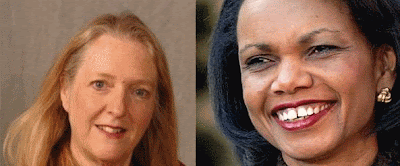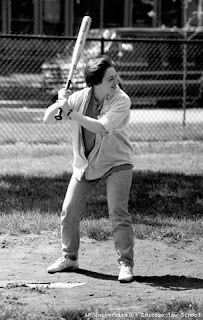As regular readers of this blog will know, I was in Boston this weekend to visit family and to be with the women who, long ago (34 years, in fact, but who's counting), adopted me as their daughter.
Indeed, as I write this, I'm on the Acela headed back to NJ where I (finally!) have WiFi (the connection is, occasionally, a bit slow, but at least there's a connection!)
That's Sheri (standing) and Lois (sitting). Up there. My 'Mamas'.
And, this is me with Lois and our dear friend, Penny at Sheri and Lois' home in the South End of Boston.
Penny lost her partner Nancy to breast cancer about, oh, maybe 7 or 8 years ago now (Has it really been that long?). They had been together for as long as Sheri and Lois - which is about 45 years.
I've got about as many Penny and Nancy stories as I do Sheri and Lois stories, but I'll save them for another time.
Let me just say that Nancy was an Orthodox Jew and Penny is Orthodox Greek.
And, Sheri is a Methodist and Lois is a most observant Christian Scientist who, nonetheless, 'adopted' a former RC who became an Episcopal priest.
Do I got stories? Oh, good Lord, do I got stories! Later, friends. Later.
I wanted to be with Sheri and Lois and Penny for the International Premiere of "
Gen Silent" - a documentary film about elderly and aging LGBT people.
Sheri is 73. Lois is 76.
Actually, Sheri's name is really Claire. That's one of the things they talk about in "Gen Silent". Back in the 50's, 60's and even into the 70's, many LGBT people didn't use their real names, publicly.
There was a weekly newspaper that published the real names of LGBT - well, in those days, "homosexuals" - who had either been arrested or seen in gay bars.
A person couldn't be too careful. We're talking jail time, here. Or, a stint in a psychiatric ward for "the cure" - which often included electroshock or ice "therapy" if a person was 'highly resistant' to being made 'normal'.
Very often, lesbians and gay men went out together so they would "pass" but they could, at least, be at the same event, in the same room, at the same table, with their lovers without anyone really knowing "the truth".
Lesbians were very careful to wear dresses and lipstick. Gay men were scrupulous to wear a suit and tie. No one trusted bisexual people. And, in those days, many trans people committed suicide.
So, if you hear a gay man "of a certain age" ask, "What was your name, back then?" (Some were "Bernadette", or "Claudette" or "Francis" or "Roberta"), you'll know they are sharing a piece of history that many of us will never know.
Thanks be to God and to them - the LGBT members of the 'Silent Generation'.
The point of the film is 'silence' - the deadly silence that many LGBT elders are being forced back into the closet in order to get adequate care when their health begins to fail.
Indeed, from my perspective, the most touching scene in the entire film is between Lawrence and Alexandre - an African American man and his much older Caucasian partner - who met when they were students at Harvard.
Alexandre had been diagnosed with Parkinson's Disease and Lawrence kept him in their home for as long as he could. Then, one day, when they both fell down the stairs as Lawrence tried to help Alexandre from their bedroom to the living room, it became painfully clear that Alexandre had to be admitted to an extended care facility.
Lawrence visited Alexandre every day.
"I would go out to the car at the end of the visit and cry for 10 minutes before I could drive," said Lawrence. "Then, I would go home and try to console myself that I did the right thing. But, when I looked in the mirror the next morning," he said, "I would say to myself, 'Yup. You really are an asshole.'"
I don't think that's much different from what many heterosexual couples experience. Even so, it broke my heart.
The first nursing home was absolutely intolerant of their relationship, so Lawrence moved him.
In talking about the difference between the two, Lawrence describes putting lotion on Alexandre's hands.
"I couldn't have done this at the last place," he says, as he lovingly and gently strokes his partner's hands, one finger at a time, Alexandre's skin made paper thin by age, his fingers gnarled by arthritis.
"Oh, I could have applied lotion to his hands," he says, "but it would have been clinical and efficient. You know? Not gentle and loving and . . . well, intimate."
I found myself weeping.
For as much as we all know about the 'ick' factor, I think what some people who are solidly heterosexist or homophobic find most disquieting is the expression of intimacy between two people of the same gender - no matter their sexual orientation, or whether their homophobia is internalized or has an external target.
Yes, they probably find public expressions of intimacy - in any form - between opposite gender people "icky", but even more so between same sex couples.
Nothing new here. Indeed, it's a very old story.
What we object to most in others is often precisely what we fear most in ourselves.
Which is bad enough, but it's really bad when you are very old and sick or vulnerable and weak and you fear being mistreated by people who don't understand. So you head back into the closet again where you know, all too well, it is not healthy, but it's at least safe.
Believe it or not, this happens all too often. Why? Well, for the same reason 'elder abuse' is a silent epidemic in our culture. We value youth. And beauty. And vigor. And independence. We don't much pay attention to anything else. And, we completely ignore the elderly.
It's worse for elder LGBT people who have often been disconnected from their families for more years than anyone can remember. Or, are not understood by younger LGBT people. Or, who haven't had children of their own. Or, who, because of their own internalized homophobia, have been in the closet most of their lives.
Like, Mel. He's a professor at Northeastern who had been in a relationship with Walter for 39 years.
They lived together. Worked together at the University. Laughed together. Loved together. Vacationed together. Shared a life together.
And, no one ever knew that they were a couple until after Walter died.
Let me say that again: Thirty nine years. And, they told no one. No. One.
Get your head wrapped around that for a minute before I go on.
After Walter died, Mel said he felt free to finally talk about his partner and their relationship.
Imagine!
He is now very active in the Boston
LGBT Aging Project.
That's Mel there. Second in from the left. Standing next to Sheri.
That's most of the cast and crew of 'Gen Silent'. Lawrence is the very tall, very handsome African American man in the back, right behind Lois.
Stu Maddux, the writer, producer and Director of the film, is standing in the back, right behind Mel. A more genuine, kind, gentle, loving person you'd be hard pressed to meet again in this life time.
Sheri and Lois and Penny took scrupulous care to introduce me to everyone - and anyone who was standing still. It was a bit embarrassing at first until, suddenly, it dawned on me what they were doing.
They were sending out the message - loud and clear - that they had someone from another generation who was 'family' in the best possible, non-biological way of being family. Who cared for them. And loved them. Who cared and loved them enough to be with them at this event on Mother's Day weekend.
This is the second Mother's Day since my own biological mother died. I thought about her and prayed for her soul. I know she's finally happy and whole and at peace in heaven. I hope she's with other mothers whose children are LGBT and that they are rejoicing in heaven what they only hid in shame while here on earth.
This is the first Mother's Day I have not spent with my own children or grandchildren. Ever. I wasn't sure how I would feel about that. I just knew I couldn't miss this opportunity to be with Sheri and Lois on their big day.
Turns out, the best Mother's Day present to yourselves is the one you give to someone else.
Go see the film when you have a chance. There's so much more to it than I can include here, including a powerful, moving story about Krysallis Anne Hembrough, a M-F trans person who struggled with cancer and how she taught the LGBT community the lessons we had already learned in the AIDS epidemic.
And, some of the wonderful case workers and social workers like Lisa Krinsky and Bob Linscott and Dale Mitchell and Jennifer Firestone who are real pioneers in the field of LGBT Aging concerns.
Go to the
Gen Silent web site to learn more, and make a contribution if you can and feel so inclined.
Make the contribution in honor of your own mother. Good or bad, everyone's had one. Make it whether or not you, yourself, are or have been a mother.
This is like 'reverse' mothering. You will help give birth to a new movement that will help nurture and support an older generation of people who often risked it all for people like you and me.
No matter whether you are male or female, gay, lesbian, bi or straight, it may be one of the most motherly things you'll ever do.
Because, as Sheri, who gets the 'last word' in the film says, "One day, you'll be seventy-two, too."
































